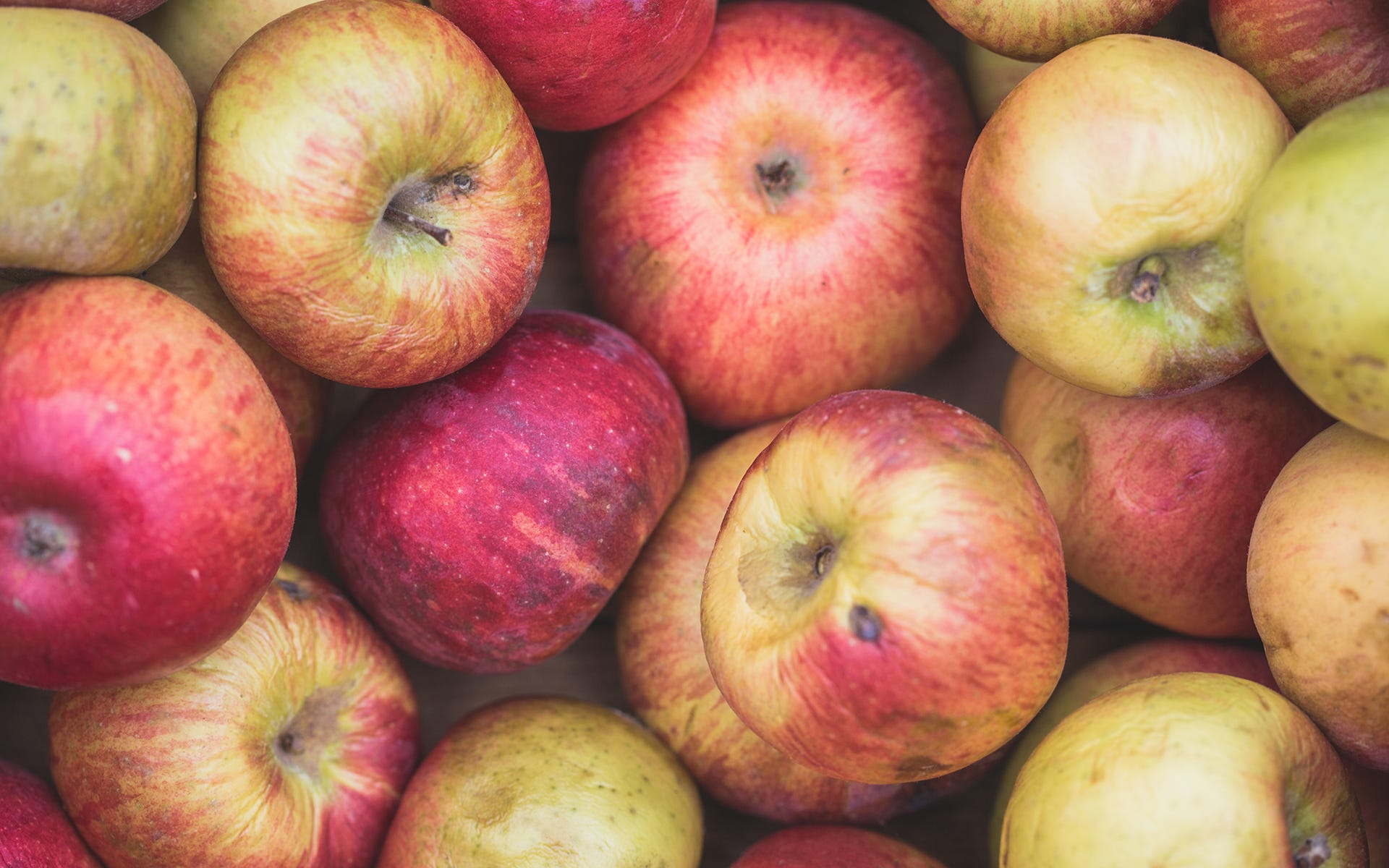
Did you know that one third of all food produced for human consumption globally - that’s 1.3 billion tonnes - goes to waste each year?[1] And it’s the same for nearly half of all fruits and vegetables produced across the world?[2] It’s almost hard to believe this is true, but what is clear is that we need to act now to help mitigate this unnecessary waste.
At Swisse, we’re passionate about sustainability and committed to reducing our footprint on the planet. When we learnt about the challenge of food waste, we immediately started thinking about what we can do to have an impact, and how we can align our sustainability commitments with our desire to create wellbeing products.
And it wasn’t long before a solution became clear: extracting ingredients from food waste – importantly, ingredients which still meet our high quality standards - and using them in our vitamin, mineral and supplement products.
The more we investigated, the more we uncovered a multitude of potential benefits arising from this proposal. Sourcing ingredients from waste streams and using them in our products can help reduce unnecessary food waste, reduce greenhouse gas emissions created by decomposing food in landfill[3], and mitigate the environmental impact of importation.
We’ve already started exploring opportunities to implement this, so let’s take a closer look below.
Turning wine industry waste into premium products
In 2022, the Australian wine industry crushed 1.73 million tonnes of grapes[4]. From this, it’s estimated that about 22% is grape marc, which is the leftover seeds and skin[5]. That’s a lot of much wanted wine and a lot of unwanted grape waste - in fact, it’s the largest food loss stream in horticulture in Australia[6].
In partnership with the Fight Food Waste Cooperative Research Centre, Viridi Innovations, Austeng, and Swinburne University of Technology, Swisse has completed a pilot project to utilise Victorian grape marc for select Swisse products that contain grape seed extract.
The grape seeds were extracted from grape marc produced in the premium grape growing regions of the Yarra Valley, and the Mornington and Bellarine Peninsulas, adding the further bonus of reduced transportation impacts. The pilot involved a green tech innovative process developed by Viridi Innovations, which is expected to reduce grape marc waste from horticulture by around 35-40% per year.
Grape seed extract is a highly sought-after ingredient in the Australian nutraceutical industry, with health benefits that include skin health and antioxidant activity[7]. This project presents a fantastic opportunity for Swisse to continue delivering innovative, premium and popular products through a local, more sustainable process, while maintaining standards of quality and efficacy.
The excellence of eggshells
Eggshells are renowned for their intricate matrix of components such as collagen, glucosamine and chondroitin, thanks to the eggshell membrane which is packed with goodness. It’s hard to imagine how many eggshells go to landfill each year from egg breaking facilities and, as a result, the enormous amount of useful nutrients that go to waste.
Swisse is currently utilising an eggshell membrane powder called NEM® in select formulations. This innovative and patented ingredient is produced through an environmentally-friendly manufacturing process of separating the eggshell membrane from the chicken eggshell. The eggs themselves all come from chickens on government-approved farms and this process saves multiple eggshells from landfill. So far, NEM® has been used in our Swisse Nutra+ Joint Pain Complex, which helps relieve mild joint inflammation and mild joint pain.
Giving ugly apples new life
It’s estimated that up to 25% of apples are rejected before they reach retailers’ shelves simply due to cosmetic reasons such as being too big or too ‘ugly’[8]. Thanks to this criterion, which seems more ruthless than online dating, a lot of healthy, tasty apples are going to waste. While some are able to be repurposed in animal feed, the majority end up in landfill.
Swisse has long had a passion for apples, thanks to our Swisse High Strength Apple Cider Vinegar supplement. Available in a convenient tablet, it provides all the benefits of apple cider vinegar without the strong taste and smell. Given that a large portion of the apples which go to waste are fine from a quality perspective, Swisse is using ingredients sourced from these apple ‘seconds’ in its product, thereby preventing a portion of the rejected fruits from going to landfill.
Food waste is a global issue and collaborative action is necessary if we are to successfully tackle this challenge. At Swisse, we are proud of the small role we are playing in helping to mitigate this issue, so we can continue to bring premium products to our customers while supporting and protecting the environment.
Always read the label and follow the directions for use.
References:
[1] FAO. 2011. Global food losses and food waste – Extent, causes and prevention. https://www.fao.org/3/mb060e/mb060e.pdf Rome
[2] Rocio Campos-Vega (Editor), B. Dave Oomah (Editor), Hayde Azeneth Vergara-Castaneda (Editor), Food Wastes and By-products: Nutraceutical and Health Potential https://www.wiley.com/en-us/Food+Wastes+and+By+products%3A+Nutraceutical+and+Health+Potential-p-9781119534105 Published February 2020
[3] To S, Coughenour C, Pharr J. The Environmental Impact and Formation of Meals from the Pilot Year of a Las Vegas Convention Food Rescue Program. Int J Environ Res Public Health. 2019;16(10):1718. Published 2019 May 16. doi:10.3390/ijerph16101718
[4] Wine Australia, National Vintage Report 2022, https://www.wineaustralia.com/news/media-releases/australian-winegrape-crush-returns-to-near-average-size-in-vintage-2022 Published 5 July 2022
[5] https://www.wineaustralia.com/getmedia/a5fe1546-389d-45ef-bc85-e651097b1e79/UM-01-01
[6]Juliano, Pablo; Sanguansri, Peerasak; Krause, Debra; Villaddara Gamage, Mala; Garcia-Flores, Rodolfo. Mapping of Australian fruit and vegetable losses pre-retail. Melbourne: CSIRO; 2019. csiro:EP191660. https://doi.org/10.25919/5d28d8ba0fad5
[7] Gupta M, Dey S, Marbaniang D, Pal P, Ray S, Mazumder B. Grape seed extract: having a potential health benefits. J Food Sci Technol. 2020;57(4):1205-1215. doi:10.1007/s13197-019-04113-w
[8] House of Commons Environment, Food and Rural Affairs Committee, Food waste in England - Eighth Report of Session 2016–17, https://publications.parliament.uk/pa/cm201617/cmselect/cmenvfru/429/429.pdf Published 25 April 2017
